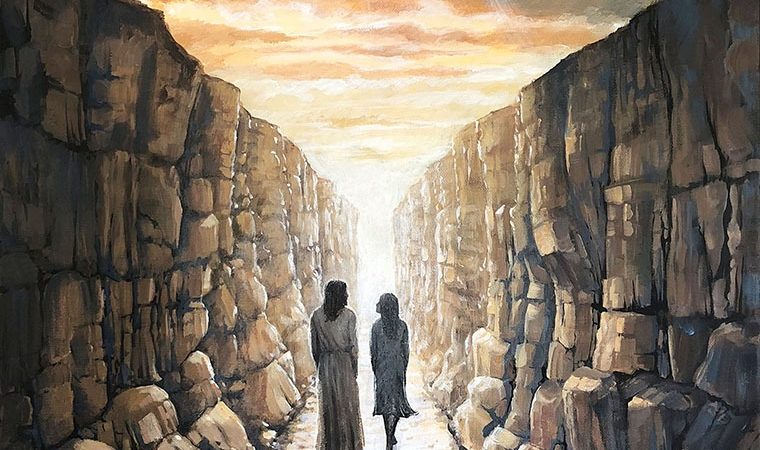What is Classic Rock?

Classic rock is a genre of music that has been around for decades and continues to be popular today. It is a type of rock music that is characterized by its heavy use of guitar, drums, and bass, as well as its focus on melody and lyrics. Classic rock has its roots in the 1960s and 1970s, when bands like The Beatles, Led Zeppelin, and Pink Floyd were at the height of their popularity. Since then, classic rock has evolved to include newer bands like Guns N’ Roses and Pearl Jam while still maintaining its signature sound. In this article, we will explore the origins of classic rock, its evolution over time, and why it remains so beloved by fans today.
The Origins of Classic Rock
When we think of classic rock, we often associate it with the music of the 1960s and 1970s. But where did this genre come from? The origins of classic rock can be traced back to the emergence of rock and roll in the 1950s. This new style of music was a fusion of various genres such as blues, country, and R&B.
As rock and roll evolved throughout the decade, it began to incorporate more complex musical arrangements and instrumentation. This led to the birth of sub-genres such as garage rock, psychedelic rock, and folk rock. By the end of the 1960s, these sub-genres had merged together to form what we now know as classic rock.
Classic rock is characterized by its emphasis on guitar-driven melodies, powerful vocals, and intricate instrumental solos. It also incorporates elements of blues and folk music into its sound. The genre has continued to evolve over time but remains a beloved staple in popular music today.
The Beatles and Classic Rock
When discussing the origins of classic rock, it’s impossible not to mention The Beatles. This iconic British band is widely regarded as one of the most influential groups in music history, and their impact on the development of classic rock cannot be overstated.
The Beatles’ early music was heavily influenced by rock and roll pioneers like Chuck Berry and Little Richard, but they quickly began to experiment with different genres and styles. Their 1965 album “Rubber Soul” marked a turning point in their career, as they began to incorporate more complex arrangements and instrumentation into their music. This experimentation continued with albums like “Revolver” and “Sgt. Pepper’s Lonely Hearts Club Band,” which are now considered classics of the genre.
The Beatles’ influence on classic rock can be seen in countless other bands that followed in their footsteps. From Led Zeppelin to Pink Floyd to Queen, many of the biggest names in classic rock were directly inspired by The Beatles’ innovative approach to songwriting and production. Even today, over 50 years after their breakup, The Beatles remain a touchstone for anyone interested in exploring the rich history of classic rock.
Classic Rock of the 1970s
The 1970s was the golden era of classic rock. The decade saw the emergence of some of the most iconic bands and artists in music history. Led Zeppelin, Pink Floyd, Queen, The Who, and AC/DC were just a few of the many legendary acts that defined the sound of classic rock during this period.
The music of the 70s was characterized by its raw energy and larger-than-life performances. Bands like Led Zeppelin and Black Sabbath pioneered heavy metal, while Pink Floyd and Yes pushed the boundaries of progressive rock. Classic rock also saw the rise of singer-songwriters like Bruce Springsteen, Bob Dylan, and Neil Young who brought a more introspective and personal touch to their music.
The 1970s also marked a shift towards album-oriented rock (AOR), where entire albums were crafted as cohesive works rather than just collections of singles. This allowed for greater artistic expression and experimentation within the genre.
Overall, the classic rock of the 1970s remains an enduring influence on modern music. Its impact can be heard in everything from grunge to indie rock to pop music today.
Classic Rock Today
Today, classic rock continues to be a beloved genre of music. While some may argue that it has lost its edge or relevance in today’s music scene, others would argue that classic rock has stood the test of time and continues to inspire new generations of musicians and fans alike.
One reason why classic rock remains popular today is because of its timeless appeal. The music of bands like Led Zeppelin, Pink Floyd, and The Rolling Stones still resonates with people today just as much as it did when it was first released decades ago. Additionally, classic rock has influenced countless contemporary artists who have put their own spin on the genre.
Furthermore, classic rock radio stations continue to thrive across the world, playing hits from the 60s, 70s, and 80s. This not only keeps the music alive but also introduces younger generations to the classics. In fact, many young people today are discovering classic rock for the first time through their parents or grandparents.
In conclusion, while some may argue that classic rock is a thing of the past, its continued popularity proves otherwise. Classic rock remains an important part of music history and will undoubtedly continue to inspire future generations of musicians for years to come.
Conclusion
In conclusion, classic rock is a genre of music that has stood the test of time and continues to be enjoyed by generations of fans. Its origins can be traced back to the 1960s and 1970s, with bands like The Beatles, Led Zeppelin, and Pink Floyd paving the way for future artists. Classic rock today may not sound exactly like it did in its heyday, but it still holds a special place in the hearts of many music lovers. Whether you’re a die-hard fan or just discovering this genre for the first time, there’s no denying the impact that classic rock has had on popular culture and music history as a whole.






